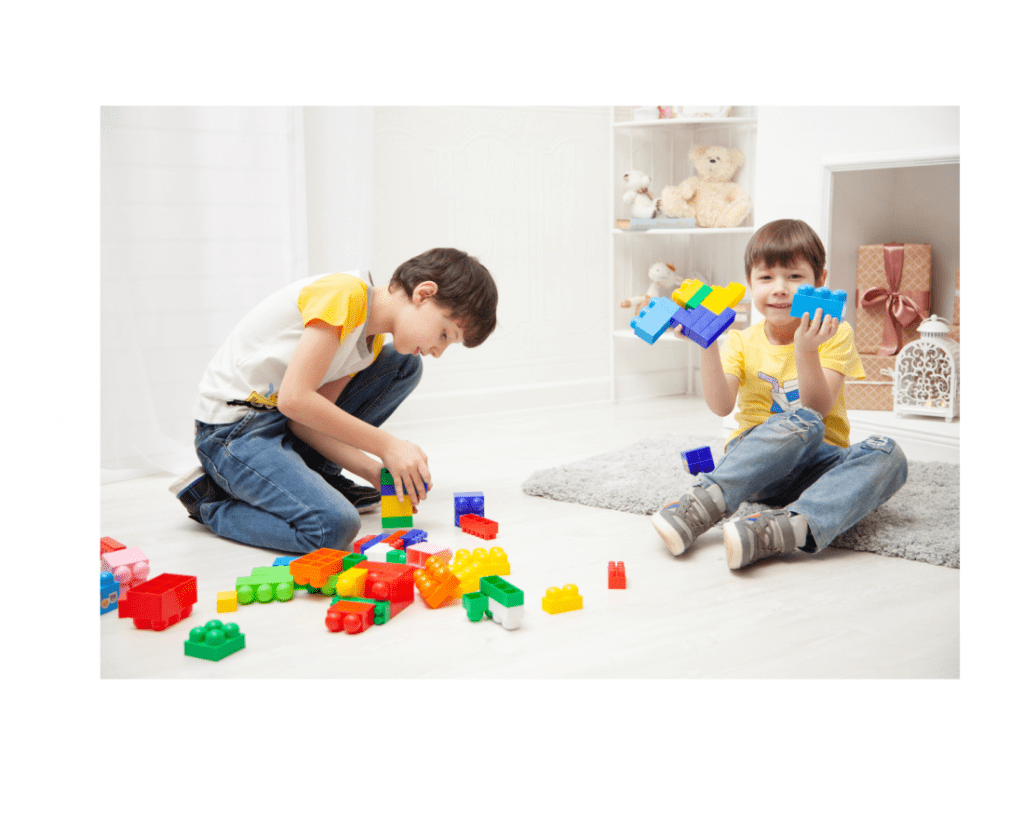A child’s ability to solve problems is valuable in helping them cope with challenges. As they grow up, kids are presented with a wealth of educational possibilities. They also regularly face challenges, such as conflicts, peer pressure, and challenging mathematical calculations. The benefits of problem-solving skills for children are vast and can help them properly deal with such situations.
This way they learn to identify practical solutions alone without relying on an adult. They will also have more faith in their capacity to apply their problem-solving talents and develop original solutions on their own when facing challenges.
Read this blog, to know the importance of problem-solving abilities for children, how to infuse this skill in them, and for some exercises like storytelling, coding for kids, puzzles, crafts, and many more to assist them to develop this crucial skill.
What do problem-solving, exploring, and thinking mean?
Problem-solving is the process of finding a solution to a problem. It may involve finding alternatives, generating ideas and solutions, evaluating them, and then choosing one. Problem-solving also includes being able to recognize when you should solve a problem. For example, taking a math test without understanding the material is a problem that needs to be solved. So is being hungry and having no money to buy food.
Exploring means looking at things from different perspectives, trying new things, and asking questions to understand. This can help us learn new things, solve problems, and make new connections. It is a skill that children can learn and use in their everyday lives.
Thinking involves using our imagination, understanding our emotions, and using language and symbols to express our ideas or solve problems.
So, let’s start at the beginning:
Contrary to popular belief, problem-solving skills are not limited to a specific set of techniques. The sum of these abilities determines how rapidly and accurately a person can work through the steps of problem-solving to arrive at a workable solution.
Some problem-solving abilities are listed below.
- Creativity
- Critical Thinking
- The Use of Logic
- Competence in Making Choices
- Knowledgeable in the Art of Conversation
- Strategic Plan for Creative Problem-Solving
There will be times when you will only need to rely on one or two of your abilities to solve the challenge at hand. Other times, especially when dealing with more complicated issues, may call for three or more. It’s hard to say without more information.
Why Is Problem Solving an Important Skill to Develop?
This may sound strange, but problem-solving skills are actually being taught way before you start solving actual problems. Infants and toddlers who are just learning to crawl or walk may tire themselves out attempting in vain to overcome obstacles such as walls. The parent is the one to first recognize the issue and then devise a strategy for dealing with it, such as eliminating the barrier or helping the child to climb it. Again, it is the parent who will recognize the child’s frustration at a challenge, such as opening a door, as the kid begins to walk. The child learns that there are ways out of difficult situations if they put in the effort to find them. Parents should not solve their children’s problems for them but rather help them work through the issues and arrive at their own conclusions.
How to Inculcate Problem-Solving Skills in Children ?
Problem-solving skills are best learned when a child is actively engaged in exploring. To promote problem-solving skills, parents can do a few things:
Method 1: Explore and Discover New Things
Exploring and discovering new things is a great way to encourage problem-solving in your child. Let your child explore one new thing a day. This can be something as simple as a new food or flavor, or finding a new toy that they’ve never played with before. Let your child explore and take note of how they feel about it. This can help them discover more about themselves and the world around them.

You can also encourage exploring through the following:
- Taking an Adventure: Going on an adventure with your child can help them explore and discover new things. You can do this inside or outside and make it as simple or as complex as your child is interested in.
- Exploring Your Environment: Get to know your neighbourhood. Explore your local parks, forests, and other areas. This will help your child get to know their environment and discover things they might not have otherwise noticed.
- Following a DIY Project: This can be as simple as building something with Lincoln logs or other building toys. Let your child explore their creative side and see what they discover about themselves through this project.
Method 2: Help Your Child Think Through Problems
If your child has a specific problem that needs to be solved, you can help them think through it by giving them some guidance. Once your child has shared their problem with you, use these steps to help them come to a solution:
- List all the facts: This means the things that are true or relevant to the problem. For example, if your child’s friend is mad at them, you might want to help them solve this problem. You can start by helping your child list all the facts.
- List all the assumptions: This means the things that your child is assuming are true but might not actually be. This is where your child might be jumping to conclusions that aren’t entirely accurate.
- List all the options: This means the different ways your child can deal with their problem. After listing all the facts and assumptions, your child should be able to come up with some options to solve their problem.
Method 3: Encouraging Exploration and Discovery in Children
As a parent, you also need to engage in this. You don’t want to be the parent who has everything planned out for their child, never allowing them to explore or discover new things for themselves. This not only helps your child, but it also helps you come to terms with the fact that you’re not a perfect parent.

You can encourage exploration in your child by doing the following:
- Let your child explore their environment: This can be as simple as exploring a park or forest or getting to know your neighbourhood. Not only does this help your child discover new things, but it also helps you come to terms with the fact that you’re not a perfect parent.
- Let your child explore their interests: Whether it’s exploring a new hobby, game, or sport, let your child dive into something they’re interested in so they can explore and discover new things.
- Be open to new experiences: When you and your child are out and about, be open to new experiences. Let your child explore and discover as much as possible while out and about with you.
Children learn best when they are actively involved in the process. With the right activities, we can help our children to develop these skills and have happier; more successful lives.
Here is a list of activities, which will test their problem-solving skills
Computer Coding/Programming
Coding is a great way to help kids develop their problem-solving skills. Children can start to understand the basics of coding from a young age and gradually build their knowledge as they age. With the right curriculum and resources, kids can become creative problem solvers and develop the skills they need to succeed. And luckily, there are plenty of ways to get kids coding.

SkoolOfCode is a great place to start, as it offers a range of online coding classes for kids, from beginner to advance. With their fun and interactive coding for kids courses, kids can learn the fundamentals of coding, while also gaining an understanding of how to think logically and develop problem solving skills. Parents can also help their kids by finding coding activities and resources that the entire family can work on together.
To help your child develop skills relevant to today’s world, consider signing him or her up for one of the many holiday workshops that focus on creating a game or project in just two hours. A coding workshop is an intensive, hands-on introduction to a specific programming language or code library. So don’t hesitate to jump on the coding bandwagon – your kids will thank you for it.
Interactive storytelling
Interactive storytelling is a creative and engaging way to develop problem-solving skills. It can apply to any interest or passion your child has: a hobby, sport, favorite TV show or book series, or even something totally new and different.

With interactive storytelling, your child can experiment, explore and create their own solutions to problems. They can apply problem-solving skills as it helps in imagining new scenarios, characters and outcomes. A child’s attachment to a fictional figure is typically at its highest during this time. So, when they’re stumped, have them imagine how their fictional hero would handle the situation. Have them consider several different options and the results they could bring about.
This can be done through a variety of different tools, from creating a story with friends using a collaborative online tool (such as Scratch, ROOM or SMAUG) to writing stories using software such as Twine or using computer programming to create an interactive story.
Puzzles
Puzzles can provide an engaging way for kids to practice problem-solving skills. Your child can try out different types of puzzles, including word or number puzzles, crossword puzzles, or jigsaw puzzles. Puzzles are a fun way to challenge your child’s problem-solving skills. They can also provide a great opportunity for you to engage your child in conversation and listen actively while he shares his ideas and solutions to puzzles.

Furthermore, the exercise will aid in the development of their analytical and logical reasoning abilities, as well as their motor abilities and hand-eye coordination.
Building Blocks

Building with LEGO or other building blocks engages your child’s creativity and imagination while also providing opportunities for problem-solving. Your child can create anything they can imagine with these materials, which allows them to experiment, explore and create their own solutions to problems. They can apply their problem-solving skills as they imagine new scenarios, characters and outcomes.
The Human Knot
The human knot is a great activity for kids who enjoy being creative and working together as a team. It can help improve problem-solving skills by working through a series of challenges with your child’s friends.

To start the activity, kids should gather in a large circle. They should then clasp hands with their neighbors to create a knot. This can be a bit tricky, so it might be best for older kids to do this activity. Once the knot is formed, the team has to work together to unknot the circle and find a solution to getting untangled. While this is a fun way to engage in problem-solving skills, it can also be a good exercise in communication.
Board games and Craft
Board games and crafts are a great way for kids to have fun and learn at the same time. For parents, it’s a great way to get their children thinking critically and creatively while improving their problem-solving skills.

Board games in particular can help develop a child’s social skills, as they’ll be spending time with family or friends playing the game. And because the games are interactive, they need to think quickly and come up with strategies to win.
Crafts can also help children develop creative thinking and problem-solving skills. By allowing them to express themselves through art and design, they’re encouraged to be creative and come up with unique solutions to their problems. Plus, it’s a great way to boost their confidence, as they’ll be proud of the things they create.

So, if you’re looking for a way to improve your child’s ability to think creatively and critically and improve their problem-solving skills, board games and crafts are an excellent option.
Interactive Websites/Online Games
Playing online interactive games is an exciting way for kids to develop problem-solving skills. These games help children think outside the box, encouraging them to come up with creative solutions for the tricky puzzles they encounter. By playing these interactive games, kids are also improving their logical reasoning skills, gaining a better understanding of the world around them, and learning how to approach problems more effectively.
Parents can also use these games to teach their children about the importance of perseverance, how to set and achieve goals, and how to work through challenges. With a variety of puzzles and games to choose from, kids can have a blast while exercising their problem-solving muscles. These skills can be applied in real-life situations where your child needs to solve problems: like unearthing a math problem, finding the best route to walk to school, or working through a disagreement with a friend.
Open- Ended Questions

Asking open-ended questions is an excellent way to help your kids think creatively and critically and improve their problem-solving skills. This type of questioning encourages kids to think outside the box and come up with solutions to complex problems. Parents can use open-ended questions to help their children explore topics, understand different perspectives, and think about the consequences of their actions. And the best part is, these questions don’t require any additional materials or tools – just you and your kids. By asking questions like “What would happen if…?”, “What do you think would work in this situation?”, or “How would you solve this problem?”, you can help your kids develop their problem-solving skills and explore their creative thinking. You’ll be amazed by the answers they come up with.
Conclusion
A better understanding of the problem-solving process and how it works can help you become a better problem-solver. Often, when we find ourselves stuck in a problem, we’re too focused on the issue at hand to think clearly and find creative solutions.
There’s no denying the benefits of engaging in activities for kids. Whether your kid is exploring the world around them or challenging their mind, these activities are beneficial for kids of all ages. However, it’s important to keep in mind that kids of different ages require different types of activities. For example, an activity that’s beneficial for an older child might not be beneficial for a younger child. That’s why it’s important to familiarize yourself with the different types of activities for kids and how they can help your child.
By – Ms. Manpreet Virk, Head of E-learning and an educator at SkoolofCode with degree in M.Phil. and Master in Computer Science. She is passionate about learning and teaching young minds.

